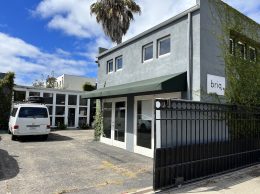New UC venture fund to pump $250M into spinoffs
IN THIS ARTICLE
- Columns Topic
- Tony Biasotti Author
By Tony Biasotti Friday, January 1st, 2016
There certainly is no shortage of money available for startup companies — total venture investments in 2014 were more than $57 billion, according to Dow Jones VentureSource, and there are signs 2015 could top that by billions.
There hasn’t been this much cash flowing, particularly in the tech sector, since the late 1990s dot-com boom. So does the startup world need another quarter billion dollars? When it’s coming from a fund targeting University of California spinoffs, the answer might be yes.
On Dec. 15, the UC Office of the President announced the launch of a venture fund run by Vivek Ranadive, a software entrepreneur who now owns the NBA’s Sacramento Kings. The UC system has contributed the first $250 million, taken from its $100 billion investment portfolio, and not included any tuition or tax revenue. Ranadive has agreed to match 5 percent of the fund’s eventual total with his own money.
There are a few ways in which the UC’s approach is different from that of a typical venture fund. First, of course, is the fact that the fund will focus on companies started by UC students, faculty and alumni. It will also target companies in the fields of green energy, life sciences, biomedicine and other ambitious areas of research — in other words, not an app that picks up your dry cleaning.
“We will be looking for inventions that make the world a better place,” said Dianne Klein, a spokeswoman with the UC Office of the President. “This is in line with our values as a university and Vivek shares those values.”
The UC venture fund will invest in the early stages of a company’s growth and will not be looking for quick payouts. “We are in it for the long term and we think that’s good for the researchers themselves and for the UC,” Klein said.
The new fund could shape up as an investor of first resort for promising new UC-affiliated companies. Rather than take their ideas through the gauntlet of VC meetings, researchers could take advantage of their existing university connections.
In Santa Barbara, the tech scene would likely not exist at all without the contributions of UCSB students, faculty and alumni. One of the area’s foundational tech companies was Digital Instruments, a nanoscale microscopy pioneer founded in the 1980s by UCSB physics professor Virgil Elings.
In the 1990s, a UCSB graduate student named John McFarlane started Software.com, which netted $6.8 billion in stock when it was acquired by Phone.com in 2000. McFarlane now runs his second Santa Barbara startup, the wireless music company Sonos.
And Citrix Online, one of the biggest tech companies on the South Coast, was founded as Expertcity by UCSB computer science professor Klaus Schauser and two of his graduate students. In recent years, there have been Inogen, Transphorm, Eucalyptus Systems and many others.
Any university spinoff has some inherent advantages over an unaffiliated startup. The very idea for the company might come from research done in pursuit of a degree, or in the course of a professor’s work. Student entrepreneurs might get started using university facilities and equipment. And interacting every day with other researchers and potential colleagues can be an invaluable asset to an entrepreneur.
The catch in all this is that the university might own the intellectual property on which a spinoff company is based. The student or faculty entrepreneur must then license the technology from the university, typically in exchange for a share of the company’s future revenue. The UC has an entire department, the Office of Technology Transfer, to handle these arrangements.
The UC is the No. 1 recipient in the world of U.S. patents, Klein said, and has been since the 1980s. On the average day, UC researchers produce five inventions, she said, and there have been more than 800 university-affiliated startups since 1980.
“The University of California is one of the most advanced and richest ecosystems for groundbreaking ideas in the world, so it would be really nonsensical not to try to encourage that and capitalize on that,” Klein said.
The UC venture fund sounds like an excellent arrangement for entrepreneurs who need funding. Whether it will be a good deal for the university, Randive and the other investors who put money into it, is a thornier question.
Venture capital is a crowded field, and the UC fund’s emphasis on companies that make the world a better place might put it as a disadvantage when it comes to seeking a return on its investments. Most of the UC’s investment money is in its pension fund and there can be tension in public pension funds between maximum returns and investments that align with the public agency’s political, social and environmental priorities.
Klein said the UC doesn’t see those goals as conflicting. As an example, she points to the system’s recent move to sell its $200 million in coal and oil sands investments. That decision was made for environmental reasons and for financial ones.
“Long-term, it doesn’t make sense to invest in an asset that really doesn’t have that long of a future,” she said. “The world needs to find new ways to produce energy, non-polluting ways, and that’s where we put our money.”
• Contact Tony Biasotti at TonyBiasotti@gmail.com.










